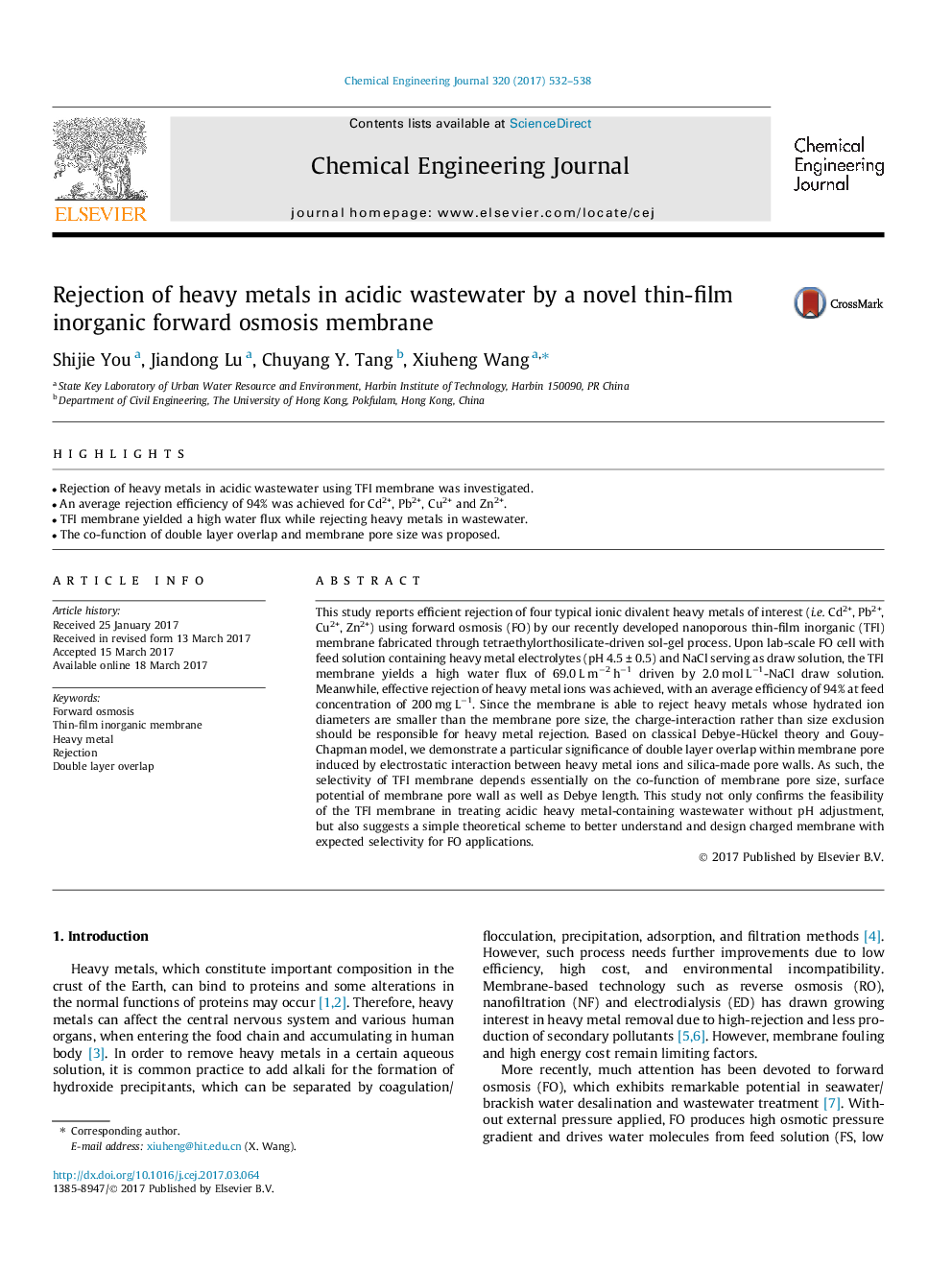| Article ID | Journal | Published Year | Pages | File Type |
|---|---|---|---|---|
| 6465970 | Chemical Engineering Journal | 2017 | 7 Pages |
â¢Rejection of heavy metals in acidic wastewater using TFI membrane was investigated.â¢An average rejection efficiency of 94% was achieved for Cd2+, Pb2+, Cu2+ and Zn2+.â¢TFI membrane yielded a high water flux while rejecting heavy metals in wastewater.â¢The co-function of double layer overlap and membrane pore size was proposed.
This study reports efficient rejection of four typical ionic divalent heavy metals of interest (i.e. Cd2+, Pb2+, Cu2+, Zn2+) using forward osmosis (FO) by our recently developed nanoporous thin-film inorganic (TFI) membrane fabricated through tetraethylorthosilicate-driven sol-gel process. Upon lab-scale FO cell with feed solution containing heavy metal electrolytes (pH 4.5 ± 0.5) and NaCl serving as draw solution, the TFI membrane yields a high water flux of 69.0 L mâ2 hâ1 driven by 2.0 mol Lâ1-NaCl draw solution. Meanwhile, effective rejection of heavy metal ions was achieved, with an average efficiency of 94% at feed concentration of 200 mg Lâ1. Since the membrane is able to reject heavy metals whose hydrated ion diameters are smaller than the membrane pore size, the charge-interaction rather than size exclusion should be responsible for heavy metal rejection. Based on classical Debye-Hückel theory and Gouy-Chapman model, we demonstrate a particular significance of double layer overlap within membrane pore induced by electrostatic interaction between heavy metal ions and silica-made pore walls. As such, the selectivity of TFI membrane depends essentially on the co-function of membrane pore size, surface potential of membrane pore wall as well as Debye length. This study not only confirms the feasibility of the TFI membrane in treating acidic heavy metal-containing wastewater without pH adjustment, but also suggests a simple theoretical scheme to better understand and design charged membrane with expected selectivity for FO applications.
